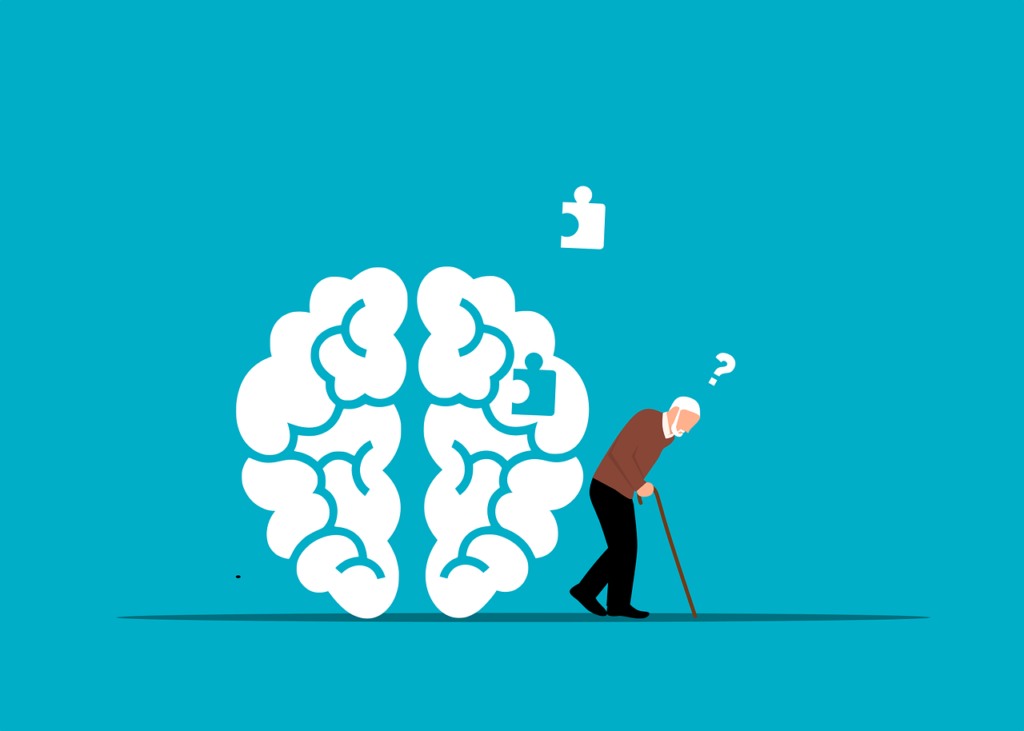What is Alzheimer’s Disease?
Alzheimer’s disease is a progressive neurodegenerative disorder that primarily affects memory, thinking skills, and behavior. It is the most common cause of dementia, a syndrome characterized by a decline in cognitive function severe enough to interfere with daily activities. Alzheimer’s disease gradually worsens over time, leading to significant impairment in memory, language, decision-making, and overall functioning.
Types of Alzheimer’s Disease
Alzheimer’s disease can be classified into two main types:
- Early-Onset Alzheimer’s Disease: This type occurs in individuals younger than 65 years old and is relatively rare. It often has a strong genetic component and may progress more rapidly than late-onset Alzheimer’s disease.
- Late-Onset Alzheimer’s Disease: The most common form of Alzheimer’s disease, it typically occurs in individuals aged 65 and older. Late-onset Alzheimer’s disease is believed to result from a combination of genetic, environmental, and lifestyle factors.
Symptoms of Alzheimer’s Disease
The symptoms of Alzheimer’s disease can vary widely but often include:
- Memory loss, especially recent memories
- Difficulty with problem-solving, planning, and organization
- Confusion about time, place, or events
- Challenges with language, such as finding the right words or understanding conversations
- Changes in mood or personality, including irritability, anxiety, and depression
- Difficulty completing familiar tasks, such as cooking or managing finances
- Withdrawal from social activities and interests
Causes of Alzheimer’s Disease
The exact cause of Alzheimer’s disease is not fully understood, but several factors are believed to contribute to its development:
- Genetics: Certain genes, such as the APOE gene, are associated with an increased risk of developing Alzheimer’s disease.
- Brain changes: Alzheimer’s disease is characterized by the accumulation of abnormal proteins in the brain, including beta-amyloid plaques and tau tangles, which disrupt communication between nerve cells and eventually lead to cell death.
- Inflammation: Chronic inflammation in the brain may contribute to the progression of Alzheimer’s disease.
- Environmental factors: Factors such as diet, exercise, education, and social engagement may play a role in reducing or increasing the risk of Alzheimer’s disease.
Risk Factors for Alzheimer’s Disease
Several factors may increase the risk of developing Alzheimer’s disease:
- Age: The risk of Alzheimer’s disease increases with age, particularly after age 65.
- Family history: Having a close relative, such as a parent or sibling, with Alzheimer’s disease increases the risk.
- Genetics: Certain gene variations are associated with an increased risk of Alzheimer’s disease.
- Down syndrome: People with Down syndrome are at a higher risk of developing Alzheimer’s disease.
- Mild cognitive impairment: Individuals with mild cognitive impairment have an increased risk of developing Alzheimer’s disease.
Diagnosis of Alzheimer’s Disease
Diagnosing Alzheimer’s disease involves a comprehensive assessment that may include:
- Medical history and physical examination
- Cognitive and neurological tests
- Laboratory tests to rule out other potential causes of symptoms
- Brain imaging tests, such as MRI or CT scans, to evaluate brain structure and function
Pharmacokinetics and Pharmacodynamics
Understanding the pharmacokinetics (how drugs are absorbed, distributed, metabolized, and excreted) and pharmacodynamics (how drugs exert their effects on the body) of medications used to treat Alzheimer’s disease is essential for optimizing treatment outcomes and minimizing side effects.
Pharmacological Treatment of Alzheimer’s Disease
While there is currently no cure for Alzheimer’s disease, several medications are available to help manage symptoms and slow the progression of the disease:
- Cholinesterase inhibitors: These medications, such as donepezil, rivastigmine, and galantamine, work by increasing levels of acetylcholine, a neurotransmitter involved in memory and learning.
- NMDA receptor antagonists: Memantine is a medication that helps regulate glutamate, another neurotransmitter involved in learning and memory.
- Combination therapy: Some individuals may benefit from combination therapy with both cholinesterase inhibitors and memantine.
Non-Pharmacological Treatment of Alzheimer’s Disease
In addition to medication, non-pharmacological interventions can also help manage symptoms and improve quality of life for individuals with Alzheimer’s disease:
- Cognitive stimulation: Engaging in mentally stimulating activities, such as puzzles, games, and social interactions, can help maintain cognitive function and slow cognitive decline.
- Physical exercise: Regular physical activity, such as walking, swimming, or gardening, can help improve mood, reduce stress, and maintain physical function.
- Nutritional support: Eating a balanced diet rich in fruits, vegetables, whole grains, and healthy fats may help support brain health and overall well-being.
- Social support: Maintaining social connections and participating in social activities can help reduce feelings of isolation and improve emotional well-being.
- Caregiver support: Caregivers of individuals with Alzheimer’s disease may benefit from support groups, respite care, and other resources to help manage the challenges of caregiving.
Conclusion
Alzheimer’s disease is a complex and progressive neurodegenerative disorder that affects millions of individuals worldwide. While there is currently no cure, early diagnosis and appropriate management can help improve symptoms, slow disease progression, and enhance quality of life for affected individuals and their families. Research into the causes and treatments of Alzheimer’s disease continues, offering hope for future advancements in prevention and treatment strategies. If you or a loved one is experiencing memory loss or other symptoms of Alzheimer’s disease, it is important to seek medical evaluation and support from healthcare professionals.




